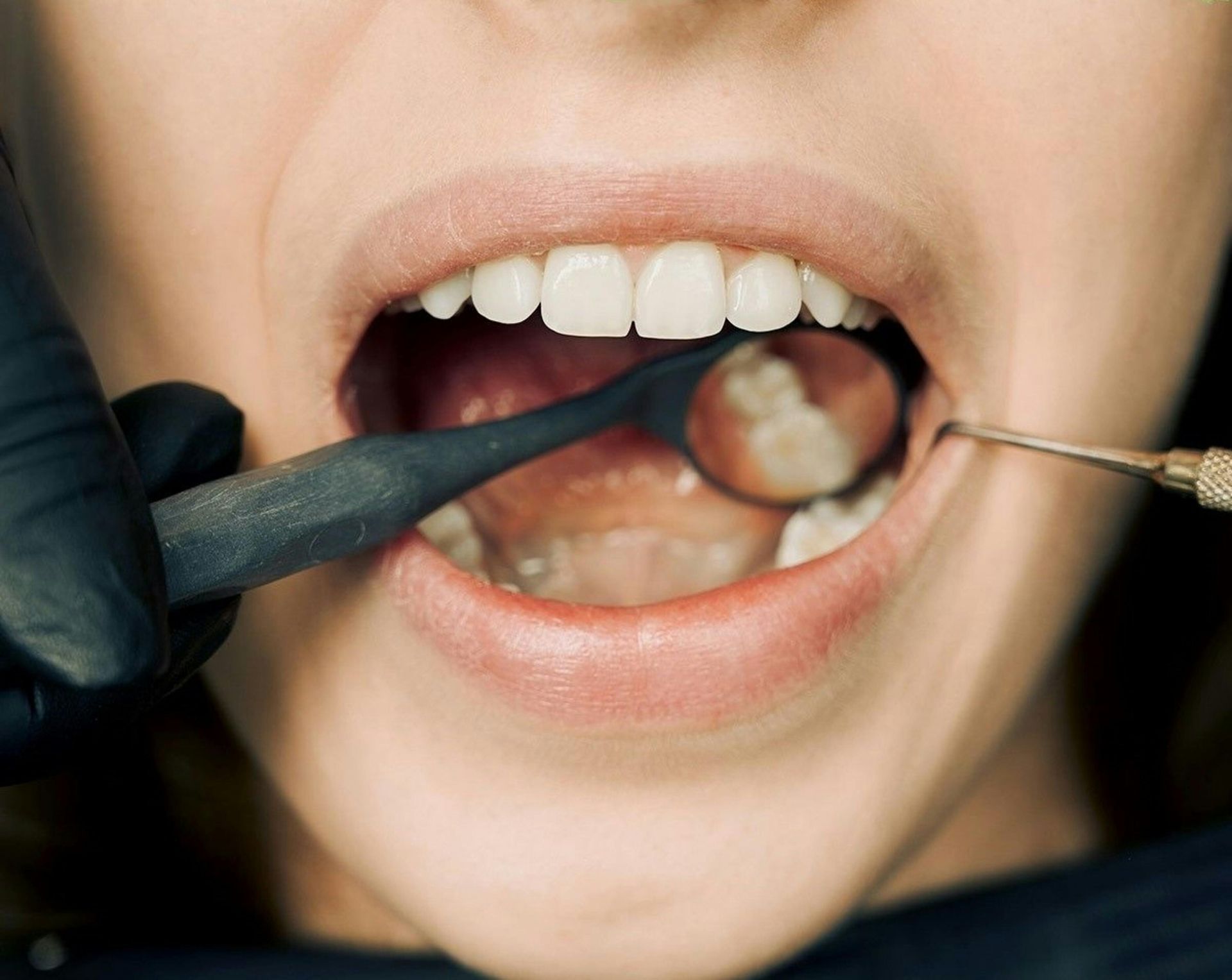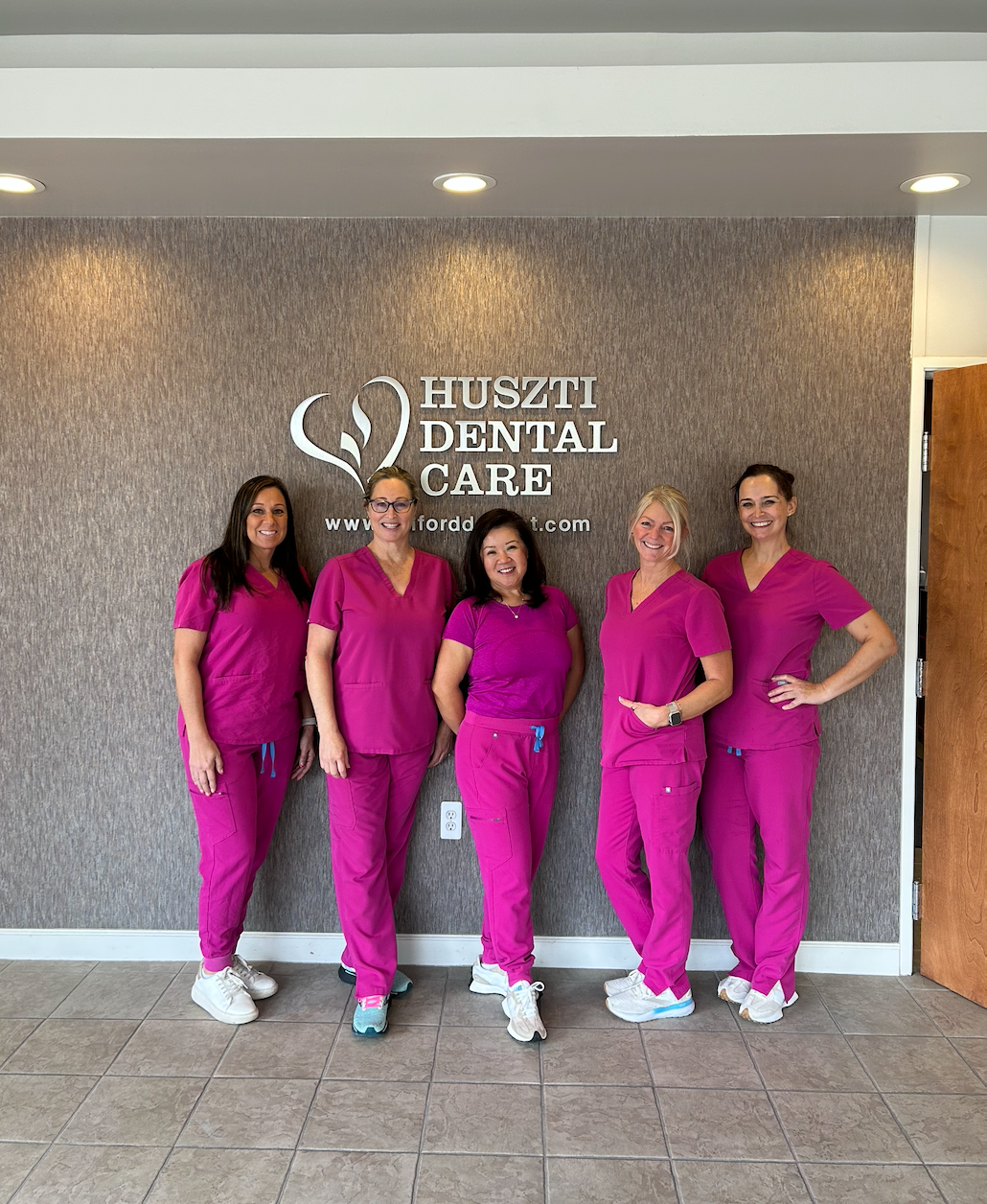HUSZTI dental care
Follow Us
Get in Touch
BLOG

By Ron Bernas
•
March 28, 2025
Spring is here and with that comes sports season for the kids. Team sports like baseball, soccer, softball, lacrosse and track and field all offer great exercise for kids, not to mention lessons in teamwork and self-esteem. But injuries are also part of the game, so to speak. Huszti Dental Care, as a family focused dentist in Milford, see's lots of sports injuries — in both children and adults — and while they may feel like the end of the world, they really aren’t. Especially if parents take some simple steps to protect their children’s precious smiles. The most important way to protect your teeth is to have your child use a mouthguard during both practice and games. These are readily available at sporting goods stores, even drug stores, but you should have a chat with us to see whether you’re getting the right one for your child and their sport. We suggest you don’t purchase the inexpensive, one-size-fits all mouthguards, as one size does not fit all. Because of this they can be uncomfortable, which means your child won’t want to wear it, and it can’t protect their teeth in their sports bag. The boil-and-bite mouth guards are still inexpensive but provide much better protection because they can be formed right to your child’s bite, which keeps it in place, doing what it is meant to do. If your child is in a particularly aggressive sport, a custom-fit mouth guard may be the best option. It costs a little more but they are worth the cost especially for older athletes who have all their adult teeth and have maybe even had some costly orthodonture. You may not consider helmets a way to protect you child’s teeth, but they can protect the jaw or mouth from any blows, especially in contact sports. Not to mention protecting the child’s head, as well! Huszti Dental Care is your dentist in Milford- we can help. Ask us about it at your next appointment or give us a call. We’ll help you choose what’s best for your child — or yourself — and their teeth.

By Ron Bernas
•
February 7, 2025
Fluoride is a naturally occurring chemical that has been added to public water supplies for nearly a century. In 1944, Michigan's own Grand Rapids was the first city in the world to take this step. Today, 70% of the world's population living in more than 133 countries benefit from the practice of adding low-levels of fluoride to the water their residents drink. Decades of research has shown that fluoride reduces cavities, increases oral health and has no realistic downsides. In fact, the U.S. Centers for Disease Control put the addition of fluoride to water systems — along with vaccines, recognition of smoking's health hazards, motor vehicle and workplace safety regulations — in the top 10 greatest public health achievements of the 20th Century. It's safe, inexpensive, and effective in preventing tooth decay no matter what the economic status or access to care. And yet, remarkably, probably part of the trend of distrust in public institutions that has roiled the United States for many years, removing fluoride from the water is on the table. Here's what you need to know. In the early 1900s, oral cavities were commonplace among the population. Yet dentists noticed that there were some areas of the country where they were not. Researchers looked into the issue and found that, in some parts of the country, fluoride was naturally present in the water supply. They also noticed that many people who lived in those areas had discolored teeth. It turned out fluoride — more accurately really high levels of fluoride — were responsible for that too. After much study, scientists and doctors determined that a very low level of fluoride in water would prevent cavities and all the issues that come with them. In the United States, the recommended ratio is 0.7 milligrams fluoride per liter. Individual states can set their own levels, up to the maximum level of 4.0 milligrams per liter. Some people have suggested there are side effects from hip fractures to bone cancer to delays in brain development in fetuses and young children. All studies have proven there is no relationship to these concerns and fluoride at low levels. In some countries where fluoride naturally occurs at very high levels people can develop a condition whereby their bones become very brittle. There are no areas in the United States where that is a concern, according to Johns Hopkins Bloomberg School of Public Health. While it may be good to question some institutions and long-held beliefs, questioning the efficacy of fluoride in public water supplies should not be one of them. It would be irresponsible to remove it.

By Ron Bernas
•
January 20, 2025
Cavities: Chances are everyone you know has one — probably even more than one. But for something that is so widespread, people don't know a lot about them. As a family centered Milford dental office we have many years of experience to share. Here are five interesting things (really!) about cavities and two tips for keeping them at bay. 1: A cavity, which dentists call "dental caries," is decay in a tooth. They are caused when bacteria in your mouth produce acids that breaks down tooth enamel. Though often painless, they can cause sensitivity, pain and, if left untreated, visible holes in the tooth. 2: People have known about cavities, and the treatment of them, for a long time. Fillings — what dentists put in the cavity to stop it from getting worse — have been found in cadavers that date back 10,000 years. Those fillings have ranged from beeswax to gold to silver and tin. Today's cavities are mostly filled with a resin that can be matched to the color of your teeth. No more unsightly metal! 3: It isn't the sugar causing the cavities, it's the acid your mouth produced by bacteria that has to break down the sugars. It's best to limit sugar intake and acidic foods and drinks like pop. And don't think you're OK switching to diet pop — the acid in those drinks contributes to cavities. 4: Because saliva plays an important part in preventing cavities, dry mouth puts you at risk for cavity growth. That's another reason to stay hydrated — but drink water, not pop. And let the hygienist or dentist if you are taking any medications or have any conditions that make your mouth dry. 5: Leaving cavities untreated can lead to other health problems. Early detection is key — that's why dentists take x-rays of your mouth — to catch and treat a cavity before it becomes a more painful issue, like an abscess, a broader infection or even tooth loss. Bad oral hygiene has also been linked to heart disease, so visit Huszti Dental Care twice a year. And now our dentists in Milford want to share two tips on how to prevent cavities. You know what they are: 1: Brush well. 2: Floss regularly. It's that simple to keep cavities away, so do the smart thing. If you’re concerned about cavities, contact our Milford dental office to schedule a checkup—we’re here to help. Your mouth and your whole body will thank you.

By Ron Bernas
•
December 4, 2024
The holidays are here and with them come parties, late nights, foods and sweets that can put your oral hygiene routine on a back burner. Here are some tips on how to keep that from happening. It's easier than you think. Stay consistent with your routine — D on’t forget the basics: brush twice a day and floss. Bring travel-sized toothpaste and a toothbrush with you to events to help you keep your routine on track. Be mindful of sugary treats — Cookies, pies and candy canes are everywhere from office kitchenettes to parties, but they can lead to tooth decay if you’re not careful. Eat them in moderation and pair them with water to rinse away the sugars and acids that build up and cause decay. And sure, those cookies only come around once a year, but also eat other things — fruits, nuts, crunchy vegetables. Drink plenty of water — Holiday beverages like hot cocoa, wine and sweet alcoholic drinks can take a toll on your teeth. Drinking water not only keeps you hydrated but also washes away lingering food particles and reduces acidity in your mouth which can lead to decay. Don’t skip dental appointments — With all the hubbub of the holidays, it’s easy to forget routine dental checkups. Many of our patients who have come to us for years are now away at college and have to fit in a dental visit while home between semesters. Don't skip those appointments! A professional cleaning can help remove any buildup that might have accumulated during your festivities. All of us here at Huszti Dental Care understand that the holidays can be so busy that people tend to slack off on their dental care. But keeping on top of things like exercising, eating well — and taking care of your oral hygiene — will ensure your teeth are in great shape before the New Year.

By Ron Bernas
•
November 13, 2024
Healthcare workers are united in one cause: Keeping you healthy. Whether they are general practitioners, specialists, nurses or dentists, they all work together to ensure their patients are healthy and will remain that way. Huszti Dental Care's staff celebrated Breast Cancer Awareness Month in October by donning bright pink scrubs. They reminded female patients to get mammograms and urged male patients to nudge their wives and significant others to do the same. Students at University of Detroit Mercy School of Dentistry — where the Drs. Huszti's daughters are working to follow in their parents' footsteps — also brought attention to the cause with their own pink scrubs. Breast cancer is one of the most common cancers affecting women worldwide and awareness is crucial for early detection, prevention and treatment. It is estimated that 1 in 8 women will develop breast cancer in their lifetime, highlighting the importance of education and outreach efforts. Breast cancer awareness campaigns, such as those held every October during Breast Cancer Awareness Month, play a vital role in informing the public about the disease, its risk factors, and ways to detect it early. It's that early detection that is the key to improving survival rates, as treatments for breast cancer have a higher chance of working when started in its earliest stages. Regular screenings, such as mammograms, are vital for women, especially those over 40, as they can identify cancer before symptoms develop. Self-exams can also help women understand the normal look and feel of their breasts, making it easier to spot changes, but they should not be considered a substitute for professional screenings, Awareness campaigns also focus on promoting healthy lifestyles and understanding risk factors, such as family history, genetic mutations and lifestyle choices like diet and exercise. Research into breast cancer is ongoing, with new treatments, therapies and ways to minimize recurrence constantly being developed. Support for breast cancer patients and their families is another key aspect of awareness. Many organizations provide resources, counseling and financial assistance to help those affected by the disease navigate the emotional and financial challenges it can bring. Overall, breast cancer awareness saves lives, and that's why our office participates in this important effort every year. By educating people, encouraging early screenings and demonstrating support, we hope we are able to reduce the impact of breast cancer and continue to make strides toward a cure.

By Ron Bernas
•
October 4, 2024
Who says dental school is all hard work? Not Olivia and Sophia Huszti, who are working their way through University of Detroit Mercy’s School of Dentistry. (The same place their parents met many years ago.) While dental school is truly a great deal of work in the classroom, there is also a lot of work outside the classroom. Upperclassmen take it upon themselves to meet members of the first-year class to offer friendship, support and some tips for handling the studying and the stress of dental school. In addition, many students participate in local chapters of national organized dental associations. Still, the sisters know there has to be a little time for fun. The photographs here are from a recent event the sisters threw to meet the new students and blow off a little steam watching the Detroit Lions. The event was a membership meeting of the Detroit Mercy chapter of the American Student Dental Association, “a national, student-run organization that protects and advances the rights, interests and welfare of dental students.” That’s according to the webpage on Detroit Mercy Dental’s website. The ASDA’s goal is to introduce students to organized dentistry in the hopes that they will be involved during their career. It provides services, information, education, representation and advocacy. The chapter has monthly meetings where members learn about issues that affect dentistry and organizes workers to staff the free dental clinic they partner on with St. Vincent de Paul as well as other events that serve the community and allow the students to hone their skills with patients.